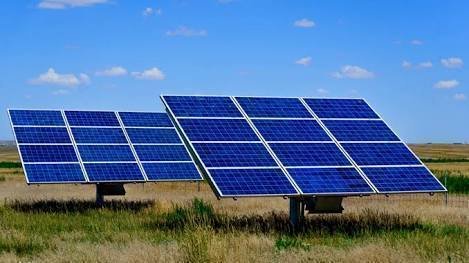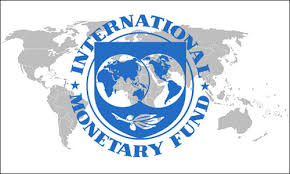Projecting Renewable Energy As A Sustainable Energy Alternative For Sme’s In Nigeria.


Nigeria has the continent’s largest economy and population. Insufficient power supply has plagued the nation for decades. The economic growth and stability of a nation largely depends on whether its economy can provide employment for its citizens. Nigeria won’t be able to create jobs at the required pace until it solves its energy crisis. Micro, Small and Medium Enterprises are crucial to the development of a country’s economy, especially countries in emerging economies like Nigeria Inadequate supply of energy and lack of reliable and affordable alternative power options has remained a major source of concern for the day to day delivery of products and services for these small businesses. It is against this backdrop that this article seeks to provide suggestions on sustainable energy options and funding solutions for small businesses in Nigeria.
In addressing the energy challenge encountered by these small businesses, it is paramount to note the role consistent availability of electricity plays in enhancing productivity. Nigeria lacks sufficient electricity to power a modern economy and this deficiency is a fundamental hindrance to its prosperity. High-energy systems and sufficient power supply is required for the economy of the nation to transit from poverty and low productivity to higher incomes and global competitiveness. Over the years fossil fuels have been used as an alternative but the harmful toxic emissions from them has posed more harm than good to the human existence. These emissions have been known to cause an endless list of health problems such as heart diseases, lung cancer, increased respiratory symptoms and sometimes death etc.
As at January 2016, the Ministry of Power indicated that the demand for electricity in Nigeria was an estimated at 12,800 MW, with supply at about 4,500 MW, which for a country of over 180 million means that demand far outstrips supply, leading to widespread self-generation. The Government of Nigeria (GON) estimates that by 2020, 26.6 GW of additional supply will be required to meet demand, an investment of upwards of $4 billion.
There’s need for a modern power system in Nigeria. As the country grows in population and wealth, there will be more demand for constant energy. Nigeria needs a high-energy grid system to power its factories and cities and to sustain a growing economy. It has great potential to produce power from a mix of hydropower, solar, wind, and especially natural-gas-fuelled thermal power.
Solving Nigeria’s basic electricity problem is complicated, and it involves a long chain from production to generation to transmission and distribution. But for small businesses renewable energy options will play a vital role. It is sustainable and it is derived from natural elements such as solar, wind and biomass and this makes it one of the most reliable sources of energy. They don’t emit harmful toxins which reduces the amount of air pollution. Consumers who want light at home can just buy a solar lantern or a small rooftop system rather than wait for the grid to arrive. Small businesses that need power can buy from local mini grid entrepreneurs. They can get loans from banks and other financial institutions which will help them acquire renewable energy. Off-grid solar energy can provide rural homes with light and power for basic appliances, and urban ones with backup.
The outright purchase of solar SASs is still very high, thus, pragmatic policies such as low interest finance, grants, reducing import duty, local manufacturing of systems must be put in place to incentivize more SAS’s sales companies to offer systems under PAYG scheme to enable low income, small businesses to be able to buy them. This will require sourcing for grants and/or low interest loans.
The Central Bank of Nigeria should consider the establishment of a special single digit interest fund for the promotion of renewable energy. Micro finance banks and commercial banks should make grants and low interest loans available for small businesses to acquire these products and services.
There are independent international financial entities who provide grants for environmental projects. According to Options for Climate Intervention written by Centre for Social Justice (CSJ) The Global Environmental Facility (GEF) Small Grants Programme (SGP) was established in the year of the Rio’s Earth Summit (1992). It provides financial and technical support to projects that conserve and restore the environment while enhancing people’s well-being and livelihoods and often live in fragile ecosystems. The SGP provides grants of up to US$50,000 directly to local communities including indigenous people, community-based organisation (CBOs) for projects in the GEF focal areas of biodiversity, climate change mitigation and adaptation, land degradation, sustainable forest management, international waters and chemicals.
The Climate Investment Funds (CIFs) according to CSJ are global multilateral financing instruments set up to promote and sustain the transition towards low-carbon and climate–resilient development with investments channeled through multilateral development banks (MDBs). The World Bank acts as a trustee for the CIF while the international Bank for Reconstruction and Development (IBRD), the International Finance Corporation, the Regional Development Banks (RDBs), the African Development Bank (AFDB), the Asian Development Bank (ADB), the European Bank for Reconstruction and Development (EBRD) and the Inter-American Development Bank are the implementation partners. Within the United Nations Framework Convention on Climate Change (UNFCCC) frame work, the CIFs are a delivery channel for fast-start finance.
However, these international funds are stringent. For greater impact, they should be made accessible not only to the government but also to non-governmental organisations. These organisations have a wide reach. They have a target oriented approach in solving environmental issues. The government can also boost energy supply through international Climate funding by providing solar farms which will generate power through mini-grids as an alternative power supply for both rural and urban settlements.









